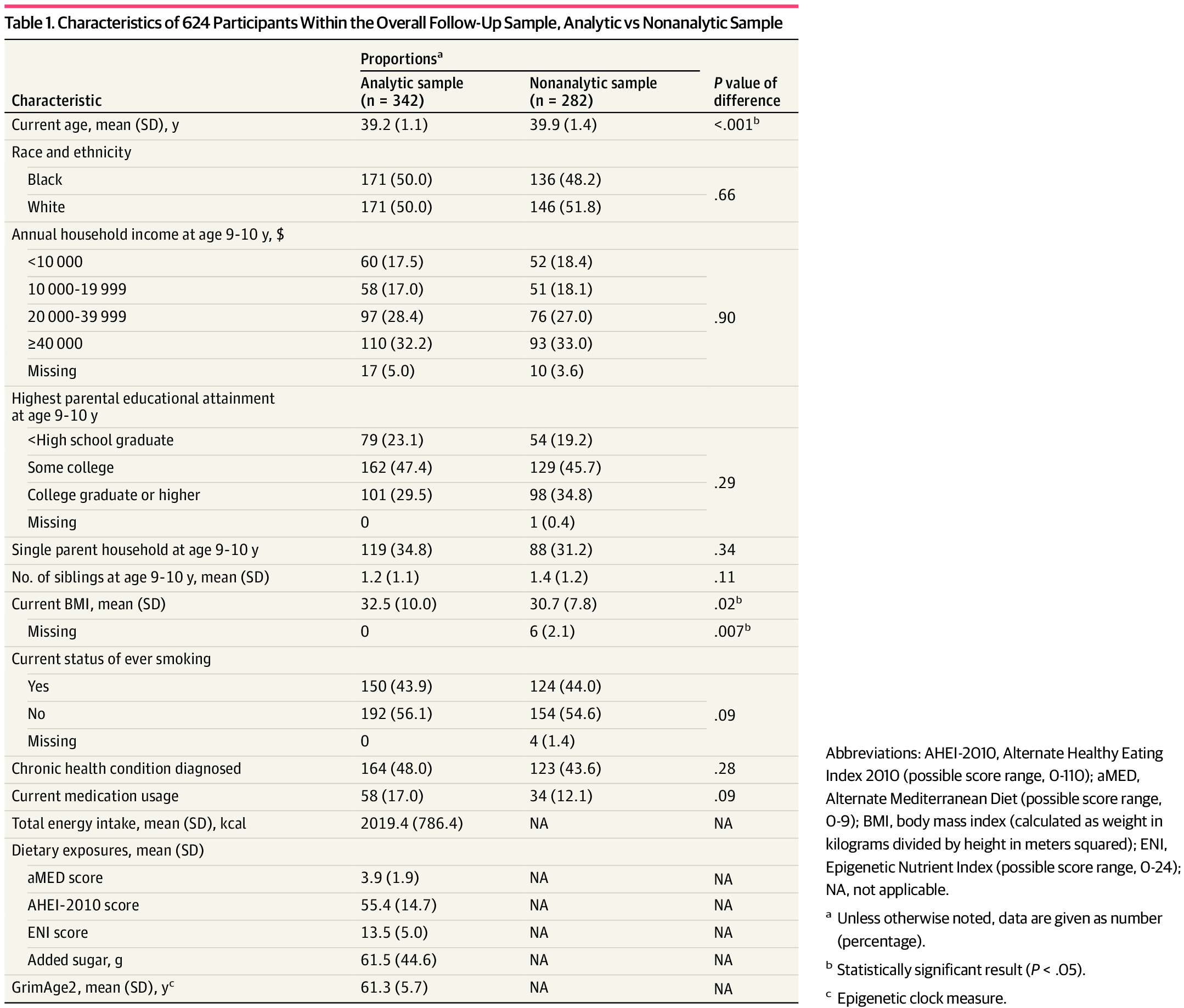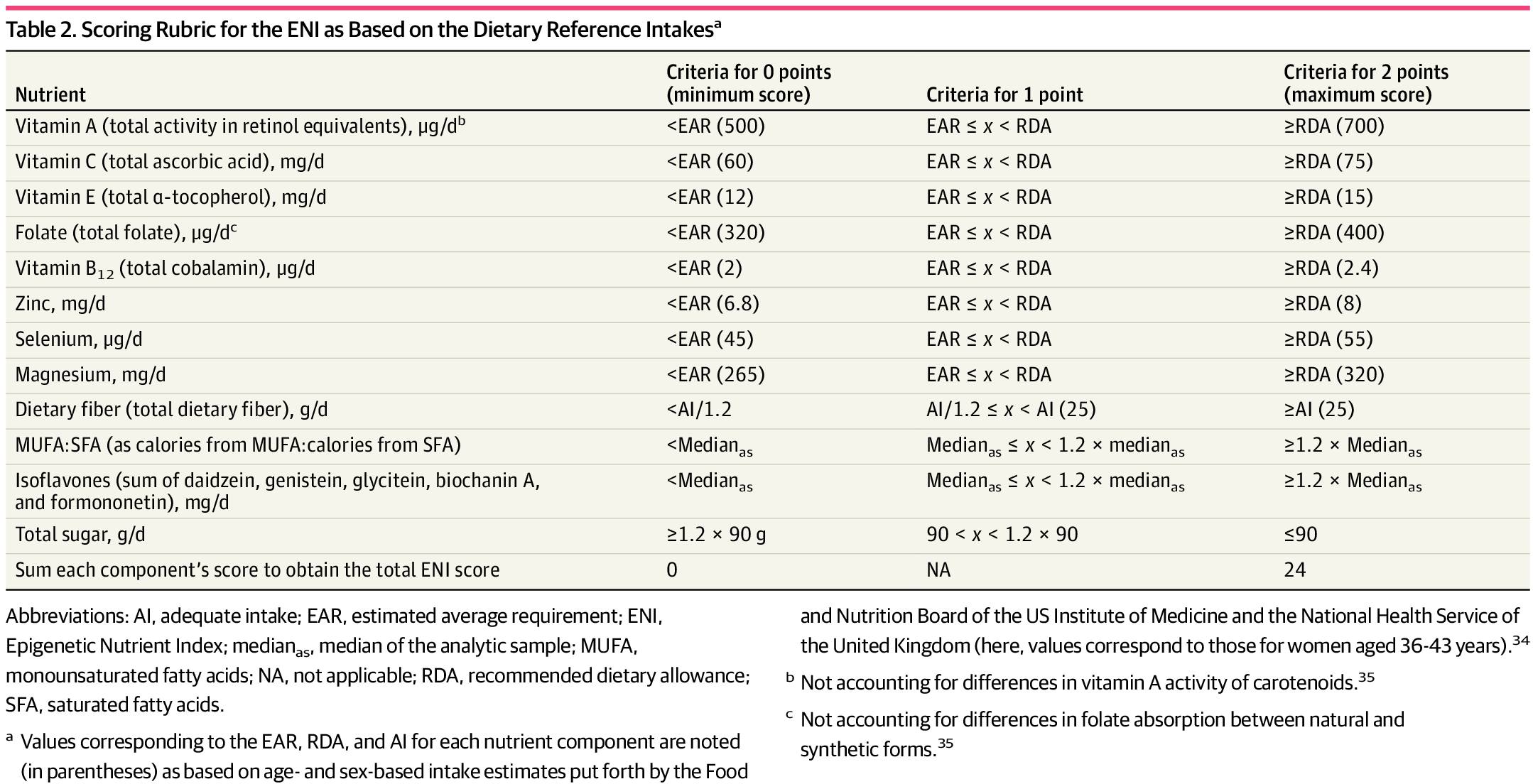Researchers at UC San Francisco discovered a link between diets rich in vitamins and minerals, especially those with minimal added sugar, and a younger biological age at the cellular level. They studied three different measures of healthy eating and their effects on an “epigenetic clock” – a biochemical test that estimates both health and lifespan.
The results revealed that better diets corresponded with younger-looking cells. However, even healthy diets were impacted by added sugar, as each gram consumed was associated with an increase in epigenetic age.
“The diets we examined align with existing recommendations for preventing disease and promoting health, and they highlight the potency of antioxidant and anti-inflammatory nutrients in particular,” said Dorothy Chiu, PhD, a postdoctoral scholar at the UCSF Osher Center for Integrative Health and the study’s first author. “From a lifestyle medicine standpoint, it is empowering to see how heeding these recommendations may promote a younger cellular age relative to chronological age.”
This study is among the first to show a link between added sugar and epigenetic aging, particularly in a diverse group of midlife women, including both Black and white participants. Most previous studies have focused on older white individuals.

The findings enhance our understanding of sugar’s harmful effects on health, noted co-senior author Elissa Epel, PhD, a UCSF professor in the Department of Psychiatry and Behavioral Sciences.
“We knew that high levels of added sugars are linked to worsened metabolic health and early disease, possibly more than any other dietary factor,” Epel said. “Now we know that accelerated epigenetic aging is underlying this relationship, and this is likely one of many ways that excessive sugar intake limits healthy longevity.”
Participants reported consuming an average of 61.5 grams of added sugar daily, with a range from 2.7 to 316 grams. For context, a bar of milk chocolate contains about 25 grams of added sugar, while a 12-ounce can of cola has about 39 grams. The U.S. Food and Drug Administration recommends that adults consume no more than 50 grams of added sugar per day.
Related Stories
In this cross-sectional study, researchers analyzed food records from 342 Black and white women, averaging 39 years old, from Northern California. They compared their diets with epigenetic clock measures derived from saliva samples.
The women’s diets were scored based on their adherence to a Mediterranean-style diet rich in anti-inflammatory and antioxidant foods and a diet linked to lower risk for chronic disease.
Additionally, researchers created the “Epigenetic Nutrient Index (ENI),” based on nutrients linked to antioxidative or anti-inflammatory processes and DNA maintenance and repair. These nutrients included Vitamins A, C, B12, and E, folate, selenium, magnesium, dietary fiber, and isoflavones.

Adherence to any of these diets was significantly associated with lower epigenetic age, with the Mediterranean diet showing the strongest association. Even when considering healthy diets, foods with added sugar were still linked to accelerated biological aging.
“Given that epigenetic patterns appear to be reversible, it may be that eliminating 10 grams of added sugar per day is akin to turning back the biological clock by 2.4 months, if sustained over time,” said co-senior author Barbara Laraia, PhD, RD, a UC Berkeley professor in the Food, Nutrition and Population Health program. “Focusing on foods that are high in key nutrients and low in added sugars may be a new way to help motivate people to eat well for longevity.”
These findings emphasize the importance of reducing added sugar intake and following a nutrient-rich diet to promote healthier aging at the cellular level. By making mindful dietary choices, you can potentially improve your health and longevity.
The American Heart Association recommends that women consume no more than 6 teaspoons (25 grams) of added sugar per day, and men should limit themselves to 9 teaspoons (38 grams). Unfortunately, many people consume far more than this, often without realizing it.
Being mindful of your sugar intake can help you maintain a healthy weight, reduce your risk of chronic diseases, and improve your overall well-being. Making small changes, such as choosing whole foods and reading labels, can make a big difference in your health over time.
Note: Materials provided above by The Brighter Side of News. Content may be edited for style and length.
Like these kind of feel good stories? Get The Brighter Side of News’ newsletter.
The post Scientists discover major link between sugar consumption and aging appeared first on The Brighter Side of News.